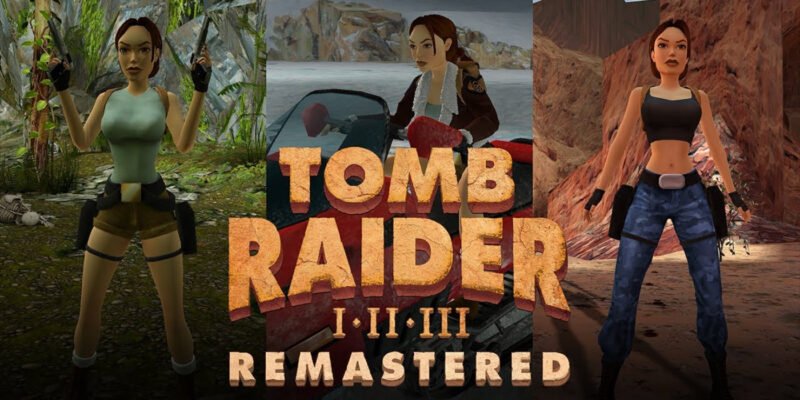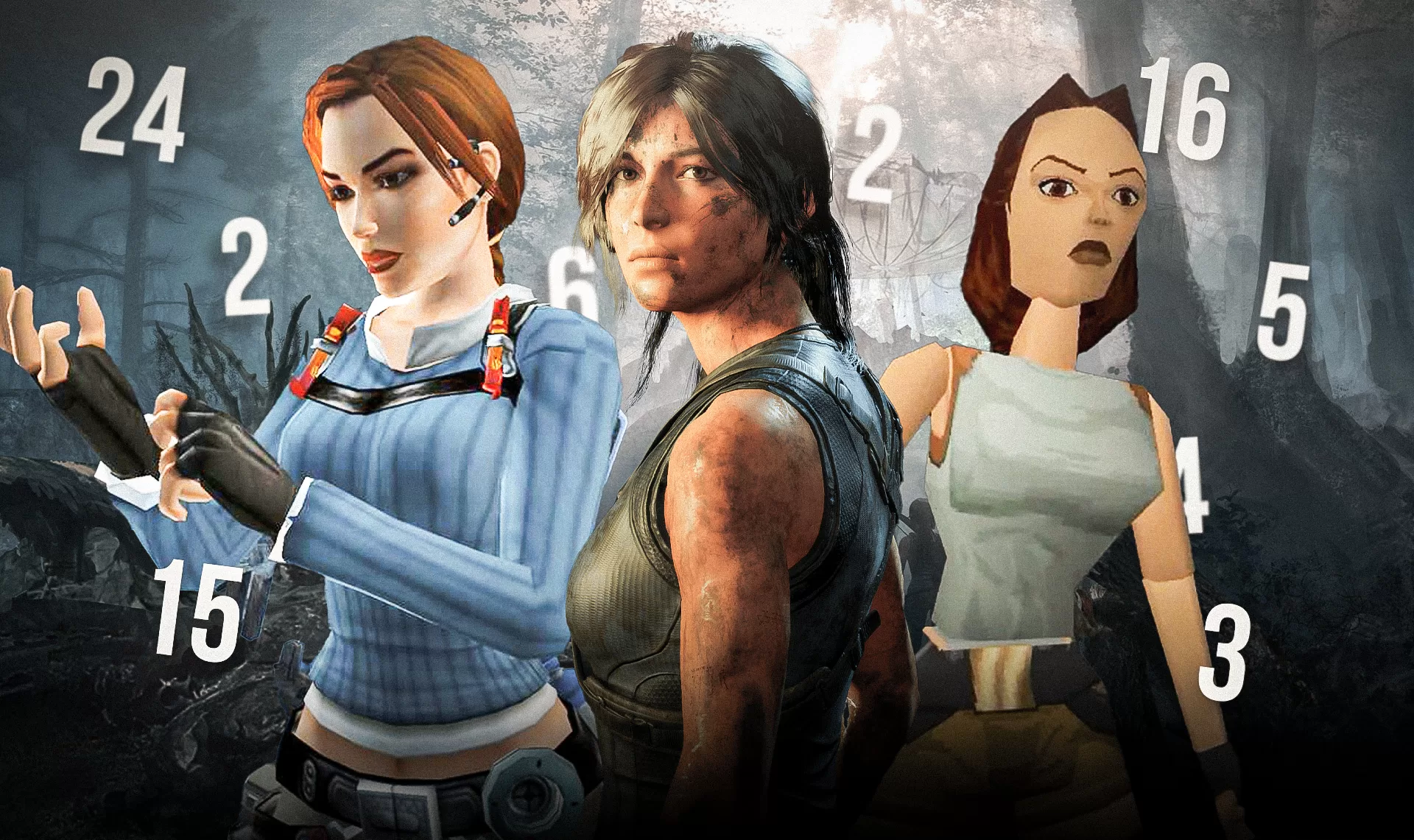A good video game remaster, especially for a retro title, needs to deliver nostalgia while simultaneously providing something new. At the same time, it must carry the heart and soul of the original. But it also can’t focus so much on the “new” that it ultimately becomes something so far removed from its source material that it becomes unrecognizable. Thankfully, Tomb Raider 1-3 Remastered tows that incredibly difficult line and the result is dazzling.
Developed by Aspyr Media, who also oversaw Mac ports of the early Tomb Raider games in the 1990s, Tomb Raider 1-3 Remastered gives Lara Croft’s earliest adventures a graphical overhaul while adding several quality-of-life improvements and fun surprises for new and old fans alike.
What To Expect in ‘Tomb Raider 1-3 Remastered’
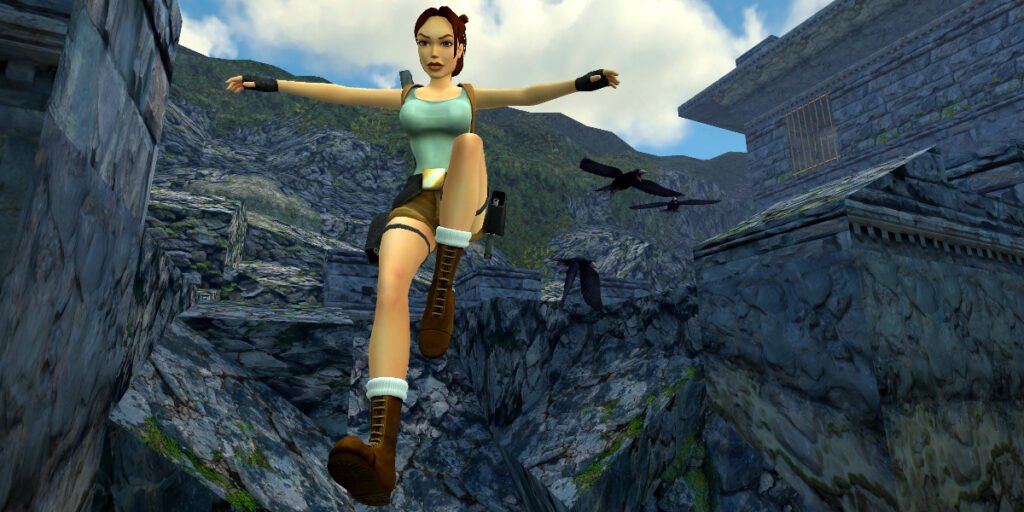
The first thing to note about Tomb Raider 1-3 Remastered is that it is both a port and a remaster. The first three games in the series, while game-changers, have slowly become relics of the past, as it’s become increasingly difficult to get them to run on modern PCs. Modern consoles can’t run them at all.
In an inspired move, the team at Aspyr ported all three original games into their remastered collection, preserving 27 years of video game history in the process. Players can easily access the ports with a push of a button at any point. For me, it was the “Back” button on my gamepad, which toggles between the original, pixellated games and their prettier, shinier, remastered versions.
This works in-game and in the main menu screens, so players can compare every element of the remasters against the originals with ease.
How Does ‘Tomb Raider 1-3 Remastered’ Look?

Graphically, Tomb Raider 1-3 Remastered is stunning. Each lovingly remastered game features crisp, high-definition textures, which replace the blurry, pixellated ones from the originals. Particle effects like fog, snow, and rain are now present. Adding to the ambiance are new vines, trees, and other foliage. Gone are the two-dimensional sprites for pickups, which have been replaced by high-definition 3D sprites.
The remastered versions also feature a brand-new lighting system. The original Tomb Raider didn’t have dynamic lighting at all. Tomb Raider II and Tomb Raider III‘s lighting, while improved, was rudimentary at best. This often led to some areas (particularly caves and tombs) being unnaturally bright while others were nearly pitch-black.
The new baked-in lighting succeeds spectacularly. It matches each level’s newly remade skybox and gives Lara’s environments a more natural look. In some cases, Aspyr even added holes in high walls and ceilings to add natural light sources.
Most of the room geometry remains unchanged, so the blocky environments from the original remain. This is a good thing, as it intentionally preserves the original games’ retro vibes even as other updates make them feel brand-new. Best of all, the remastered games run at a clean, crisp 60 frames per second at the very least, instead of the 30 fps of the originals.
The Character Models of ‘Tomb Raider 1-3 Remastered’
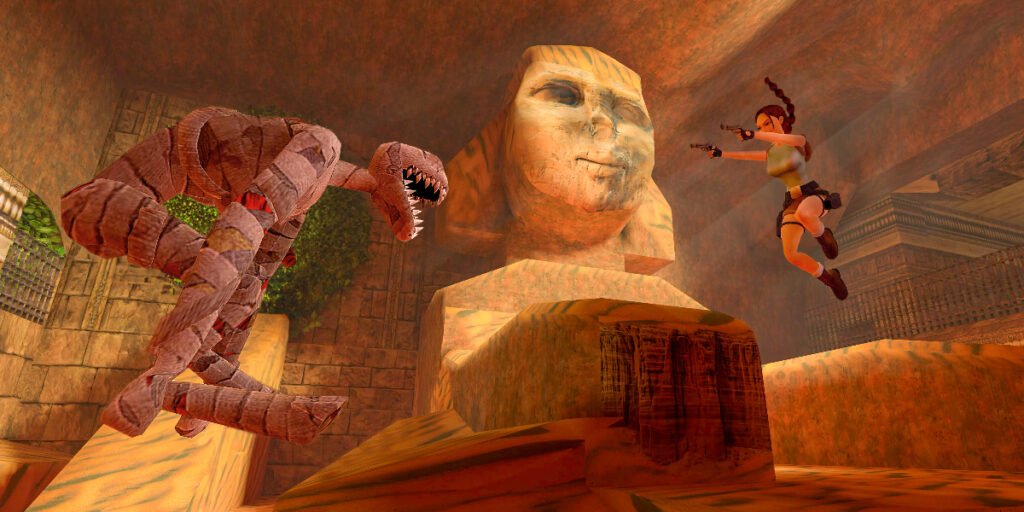
Outside of its updated textures and lighting, the next most prominent changes in the remastered collection are the updated character models. Lara Croft is no longer quite as angular as in the early games. Her body is smoother, her joints are fully connected, and she even has facial animations.
Lara now has her poofy braid (notably missing in the original Tomb Raider) in all three games, which now matches her character model in the in-game cinematics and menu screens. Likewise, the enemies and NPCs also received similar overhauls. Some of them still look cartoonish and exaggerated as they did in the originals, but with far more detail than ever before.
The updated character models also appear in the game’s end-of-level cutscenes with full facial animations and optional subtitles. The in-game cinematics, however, are just upscaled versions of the originals, which cause some blurring and wonky-looking text.
Gameplay Remains Similar With Added Features

Gameplay-wise, not much has changed. All three games are based on a grid system. The game’s infamous “tank controls” ensured that Lara always moves in relation to that grid. It makes for precise platforming, a cornerstone of all three games.
The tank controls are notoriously polarizing and are often cited by modern players as a major turn-off. They are the default control scheme in the remasters, and anyone who is used to them should have no problem moving Lara around.
That said, Aspyr also added an optional modern control scheme for those who never jived with the old-school controls. This scheme, largely borrowed from Tomb Raider: Legend and its sequels in the mid-to-late 2000s, works surprisingly well.
Lara moves more fluidly and is more nimble, which helps in combat situations. It even implements a last-minute save of sorts, in which the player can save Lara from a fall by quickly pressing the action button as she runs off a ledge. If performed correctly, Lara will turn around and grab the ledge, saving herself.
The modern control scheme has its drawbacks as well. When toggled on, Lara can’t backflip, hop backward, or perform her side jumps unless she draws her weapons first. She also doesn’t have the same precision with her jumps as she does with the tank controls.
One of the best new features is the “Walk to Action” function, which gets rid of the frustrating need for Lara to stand directly over/in front of items she can pick up and interact with. The game also adds a rudimentary photo mode and optional action indicators in the form of an exclamation point that floats above pickups and interactable objects.
The ‘Tomb Raider’ Expansion Packs Return in the Remasters
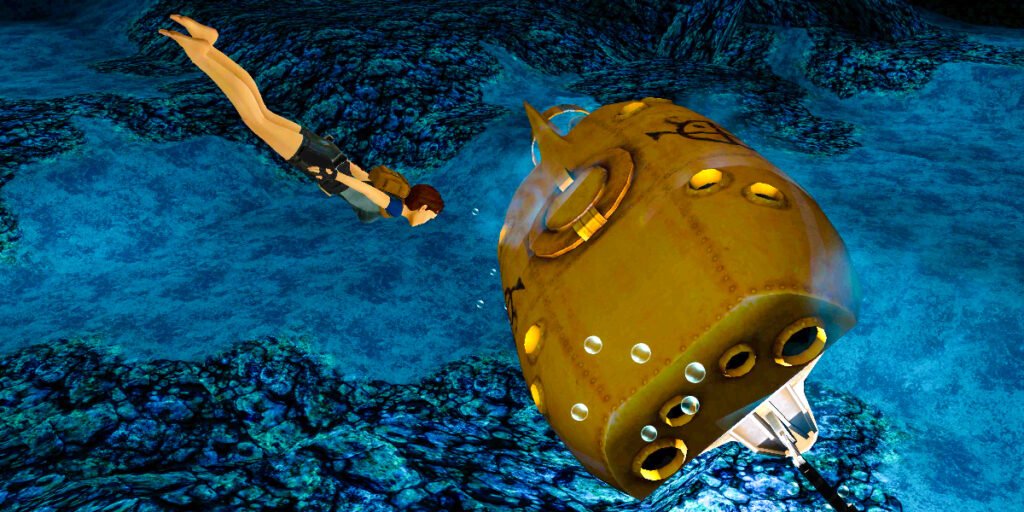
The ports and remastered versions of Tomb Raider 1-3 would have been more than enough, but Aspyr didn’t stop there. They also brilliantly added each game’s “Gold edition” expansion packs, which were essentially DLC before downloadable content was a thing.
This included the four additional levels from Tomb Raider Gold, known as Tomb Raider: Unfinished Business. Tomb Raider II Gold: The Golden Mask adds six levels set in Alaska and a nightmarish version of Las Vegas. Finally, Tomb Raider III: The Lost Artifact also adds six levels that continue the story of its parent game.
This is significant because these expansion packs were previously only available for PC users. They were also notoriously difficult to install and run on modern computers, making it nearly impossible for many fans to play them. With Tomb Raider 1-3 Remastered, players can easily access the expansion packs from their parent game’s main menu screen.
The PS4 and PS5 versions also add nearly 300 trophies that players can collect by performing various tasks throughout the game. After beating a game, players have the option to start a New Game+. This option adds more difficulty like stronger enemies, fewer health pack pickups, and limited saves.
Should You Buy ‘Tomb Raider 1-3 Remastered?’
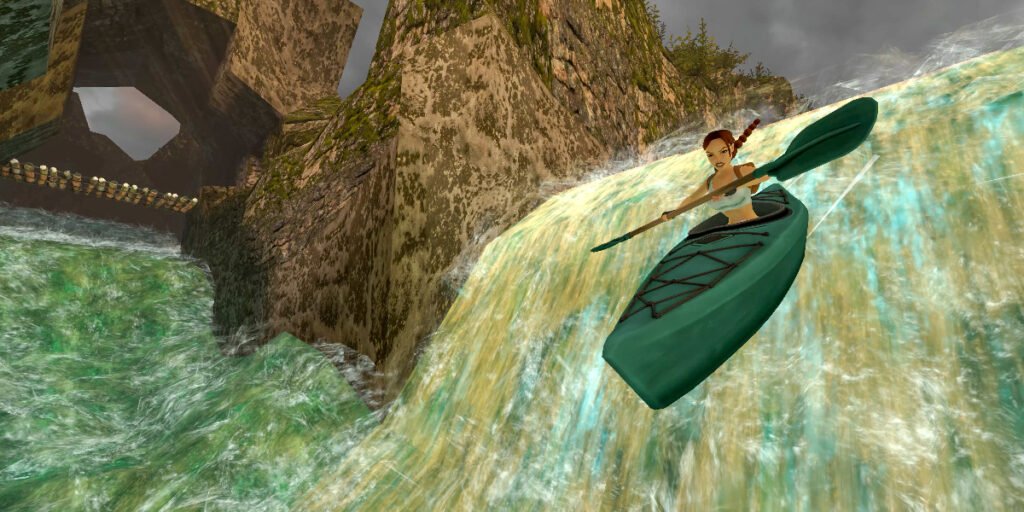
With its lovingly updated graphics, quality-of-life improvements, the addition of its long-lost expansion packs, and other fun add-ons, Tomb Raider 1-3 Remastered is a gem of a collection. It’s clear that a lot of love, care, and passion went into it. It’s not perfect and could do with a few patches to fix some minor issues, including missing/incorrectly placed textures, pickups that are difficult to see, and a few areas where the remastering feels incomplete. That said, it’s arguably one of the best and most comprehensive remastered collections in recent memory.
What this collection does for video game preservation is just as important. It takes three groundbreaking games in danger of being lost to the sands of time and reinvigorates them while also preserving their original look and charm. The collection is a triumph and a must-own for any Tomb Raider fan or lover of retro games.
Tomb Raider 1-3 Remastered is now available on all modern platforms. Follow the Agents of Fandom socials for all the latest entertainment news and reviews.
'Tomb Raider 1-3 Remastered' Review
'Tomb Raider 1-3 Remastered' ReviewThe Good
- New, crisp, HD textures.
- Players can toggle seamlessly between classic and remastered graphics.
- New baked-in lighting greatly enhances the atmosphere in most areas.
- New, HD character and enemy models.
- The addition of the long-lost expansion packs preserves a mostly forgotten relic from Tomb Raider's past.
- Photo mode is fun but rudimentary.
- Trophies and New Game+ add more of a challenge for veteran players.
- Tank controls are more responsive.
- Accessibility features like optional subtitles, walk to action, and action indicators make the games more accessible to all players.
Could Be Better
- The wonky camera while using modern controls can impede Lara's movement.
- Some textural glitches.
- Some areas are too dark.





